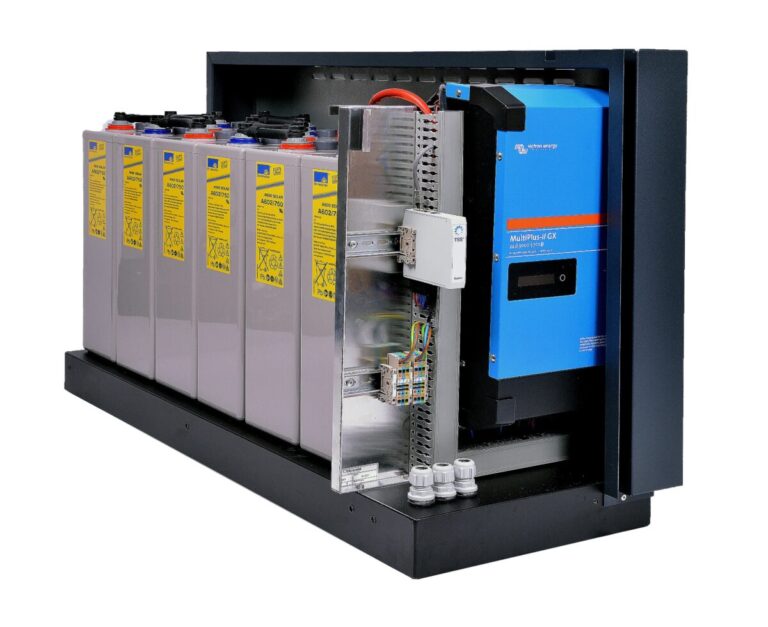A new Dutch home battery has a new twist on old technology: gel lead-acid batteries, for safe operation.
By ESS news
SS4U, a new company from parent company TSS4U, a Dutch off-grid solar energy specialist and engineering firm, has launched a new battery designed for residential use. It is based on the technology of old-is-new: lead-acid, with a twist.
The battery is a gel-lead-acid implementation, developed in collaboration with VDL Groep, a diversified Dutch manufacturer in the fields of energy, mobility, technology and more. It features an integrated charging system designed by ESS4U, which optimizes battery life and performance.
A Qurmit system can store 17.6 kWh of energy, discharge with 2.4 kW and charge with 2 kW. The disadvantage is the weight: the system weighs 550 kg, compared to a more common home battery, such as the Tesla Powerwall3for example, containing 13.5 kWh and weighing 130 kg, using lithium iron phosphate (LFP) chemistry.
Still, the advantages of the Qurmit are that the batteries operate between -40 C and 55 C, beating LFP batteries at the low and high end, that there is no such thermal runaway or fire risk, and that the components come entirely from Europe, the company claims. , and made in Eindhoven.
In addition, recycling is much easier and with an IP44 rating the system can be used both indoors and outdoors. The company claims a lifespan of 20 years.
Dop Brzesowsky, Managing Director at ESS4U, said: “We have many years of experience using gel technology for large industrial off-grid solar projects. After thorough research and an extensive testing period, we have now reached the point where we can offer this fire-safe technology in the form of a home battery. The Qurmit’s battery cells consist of 50% recycled material and the entire home battery is 95% recyclable at the end of its life.”
Brzesowsky continues: “Because our Qurmit home battery is fireproof, we also solve the insurance problem for small companies that want to purchase a (home) battery. Their insurance often does not cover damage caused by home batteries based on lithium-ion technology, unless specific additional measures are taken, such as fire and explosion-proof areas.”
The company told Dutch media that it wants to offer a 90 kVA system that stores 740 kWh of energy for the commercial and industrial segment.
So far, the installers who offer the home battery are only located in the Netherlands.
This content is copyrighted and may not be reused. If you would like to collaborate with us and reuse some of our content, please contact: editors@pv-magazine.com.


